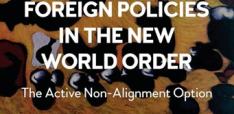500 Impérialistes Sur la Ligne de Depart?
In January, I again watched the Paris-Dakar Rally (this being the 32nd running of the event, on a route that passed through neither Paris nor Dakar), one of the top events in motorsport. Winning the Dakar, whether in a car, in a truck, or on a motorcycle (and particularly the latter) puts one among the motorsport elite as one of the most skilled, and toughest, competitors on earth.
And, when one reviews the evidence of imperialism in sport, nothing quite tops the Dakar Rally. It is the modern equivalent of Roman triremes approaching Carthage.
The most advanced vehicles in the world are shuttled to exotic places in the developing world. The cost of moving a single Volkswagen Touareg race vehicle to the starting line from its factory in Hanover is about five times Argentina’s per capita GDP (the site of this year’s finish line). The cost of each race vehicle is about twenty times the cost of the average single-family home in Buenos Aires. Referred to by some as the land-based America’s Cup (a reference to the yacht race), the costs of Dakar have spiraled upward and now fielding a team of four cars (as Volkswagen does) means incurring costs on par with those of preparing a Formula One effort.
So, as a matter of policy, are events like the Dakar Rally good or bad?
The classic debate has been whether events like this 1) bring positive revenue and attention to remote areas of the world or 2) treat the developing world and emerging markets as playgrounds for the mostly-global-north, mostly-white, covered-with-corporate-logos, wealthy competitors.
To understand the politics of this debate, one must first understand the context of the event.
The race has always been a symbol of – some would argue a result of – a perceived north-south dichotomy between “advanced” Western Europe and the “primitive” or “undeveloped” (words that appear in early Dakar posters and advertising) areas south of the Mediterranean and, eventually, south of the equator (the most ambitious rally being 1992’s Paris-to-Cape-Town odyssey). Though the original route from Paris-to-Dakar varied over the years (to include Algiers, Tunis, Tripoli, Granada, Cairo, and other destinations), this idea of European gentlemen racing “into the wilderness” (as the BMW Motorrad advertisements of the 1990’s proclaimed) remained the central theme.
A debate still rages in economics and finance about whether hosting the Olympics has any positive effect on the host country or city, and link between the Olympics and any positive effects has been tenuous at best. But the economic development argument is even more dubious for Dakar than for the Olympics. There has been little evidence over the years that the Dakar Rally is an effective tool for economic development. The technology used in today’s race cars cannot be maintained or repaired in the countries that host the rally, and even the fuel used by the competitors is often shipped from Europe. Many race teams stay in prefabricated containerized housing or in race-site-specific temporary villages, with team bosses often entertaining offshore on chartered yachts. Meanwhile, the race is very disruptive to the local community, with spectators, villagers, and livestock struck and killed by race vehicles with alarming frequency throughout the rally’s history. The few large transactions engaged in by race teams are often with local corporations that are subsidiaries of European companies.
The tension between the racers and their hosts finally came to a head with threats of terrorist attacks aimed directly and explicitly at the rally participants in 2008. Ten days before the rally, four French tourists were murdered by terrorists linked to al-Qaida. Violence groups released statements that further French civilians would be targeted if the race continued. The statements called for violence in Mauritania and labeled its support for the race as evidence of its support for “crusaders, apostates, and infidels.” The government in Paris, the historical home of the race and still home to its sanctioning officials, called for the race’s cancellation. Bernie Ecclestone, Formula One’s boss, commented at the time that he thought cancelling a race in the face of violence was the right decision. Nearly exactly three years later, Ecclestone would make the same decision, cancelling the 2011 Bahrain Grand Prix due to popular uprisings and unrest in the region.
There will always be curiosity from the developed world about the developing world, particularly Africa (and, to a lesser extent, South America). Exploiting this curiosity, from the Dreadnought hoax to the Dakar Rally, is an omnipresent theme in modern European history. The question of “But what if it were people from Dakar racing through the streets of Paris?” once posed to the président de la course may yet come to haunt the race, given recent proposals.
Two High-Profile Responses
To address the cultural, environmental, and economic impact of the Dakar Rally, Omar Osama bin Laden (the son of Osama bin Laden) proposed a horse race across the MENA region in 2008, an idea he reiterated in 2009 after the Formula One Grand Prix in Monte Carlo.
One step more audacious than Omar Osama bin Laden, Indian businessmen including Vijay Mallya reportedly proposed a “reverse Dakar” where billionaires from developing countries raced across America and Europe. Mallya went on to buy the Spyker Formula One team (he renamed the Dutch auto cmpany's team Force India), but he does not yet own a rally team.
Whether the format of the Dakar will endure in anything resembling its original form remains to be seen, but it may be more interesting to watch what happens as wealth in the developing world continues to swell – and as its billionaires seek to have exotic adventures of their own.
